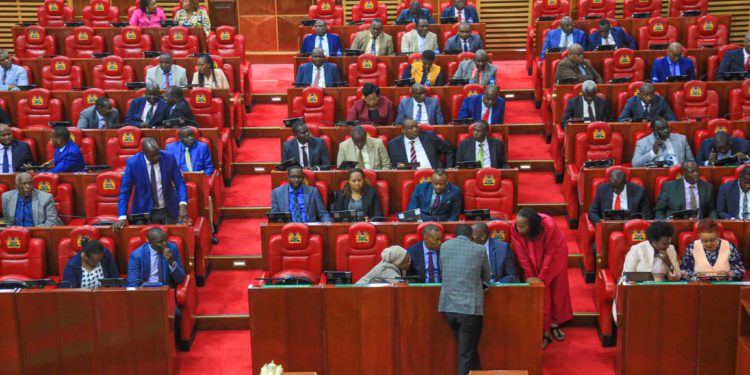In the last two weeks, we’ve witnessed a whirlwind of political events that has left many Kenyans questioning whether our lawmakers still understand their roles or if they’ve entirely gone to bed with the Executive.
The recent motion to impeach Deputy President Rigathi Gachagua serves as a clear indicator of how quickly things can move when the Executive is involved, and the process raises significant concerns about the integrity of our institutions.
It all began with Kibwezi MP Mwengi Mutuse introducing a motion to impeach the Deputy President. In an almost full house, the motion was passed swiftly, late into the night. As Kenyans slept, the matter had already been gazetted, and by morning, it had reached the Senate. In record time, the Senate convened to deliberate on the motion. Within 48 hours, Gachagua was impeached on five grounds.
By the time the Senate’s vote concluded near midnight, the Deputy President was officially out of office, and by dawn, Kithure Kindiki had been appointed as his replacement. The IEBC, which President Ruto claimed had cleared the new Deputy President, managed to conduct this clearance in a mere 10 hours—at night and without commissioners, sparking questions on the legitimacy of the process.
What does this lightning-fast sequence of events tell us? For one, it suggests that Parliament and Senate are no longer the independent arms of government they were designed to be. Instead, they seem to operate at the behest of the Executive, rubber-stamping decisions without the necessary oversight or debate. Our lawmakers, tasked with representing the people and upholding the Constitution, appear to have traded their duties for expediency—or worse, for personal gain.
There are unconfirmed reports alleging that MPs were incentivized with KES 2 million each, while senators pocketed KES 8 million to expedite this process. If these claims hold any water, it wouldn’t be the first time we’ve seen lawmakers prioritizing self-interest over their constitutional mandate.
The frequent turnover of Kenya’s Deputy President stands in stark contrast to the sluggish pace of action on issues that directly impact the daily lives of citizens. While Members of Parliament and Senators failed to secure a quorum for crucial bills concerning public welfare during this period, they had no difficulty assembling swiftly, even at odd hours, to determine the fate of Deputy President Gachagua.
Ironically, legislation addressing unemployment, the Social Health Authority (SHA), and the contentious involvement of Adani in our airports and energy sectors, along with agriculture, drags on, even when public participation yields overwhelmingly negative feedback.
Have Lawmakers Forgotten Their Role?
Article 96 of our Constitution makes it clear: the Senate’s role is to represent the interests of counties and ensure the Executive is held accountable, particularly on matters of national importance like impeachment. The same goes for Parliament, whose legislative authority comes from the people and whose purpose is to protect the Constitution and promote democratic governance. But in this case, these bodies acted more like an extension of the Executive than independent institutions safeguarding the public’s interest.
Further complicating matters is the state of the IEBC. How did it manage to clear the new Deputy President when there were no commissioners in place to oversee the process? President Ruto’s statement that Kindiki was cleared raises more questions than answers about transparency and governance. This episode showcases a system that’s been captured by the Executive, where processes that should take weeks or even months are completed overnight—without the necessary scrutiny.
A House of Business, Not Governance
This incident sheds light on a larger issue: our lawmakers no longer prioritize the will of the people. Whether it’s the unchecked influence of foreign corporations like Adani or the seeming apathy toward tackling unemployment, it’s clear that Parliament and Senate have strayed far from their constitutional duties. When national issues are sidelined for the sake of political expediency, it’s not just the Constitution that suffers—it’s the Kenyan people.
As we ponder the last two weeks’ events, we must ask ourselves: have our lawmakers lost their heads, forgotten their roles, and sold their souls to the Executive? If so, it is time for Kenyans to demand accountability and transparency from those elected to serve them.
















